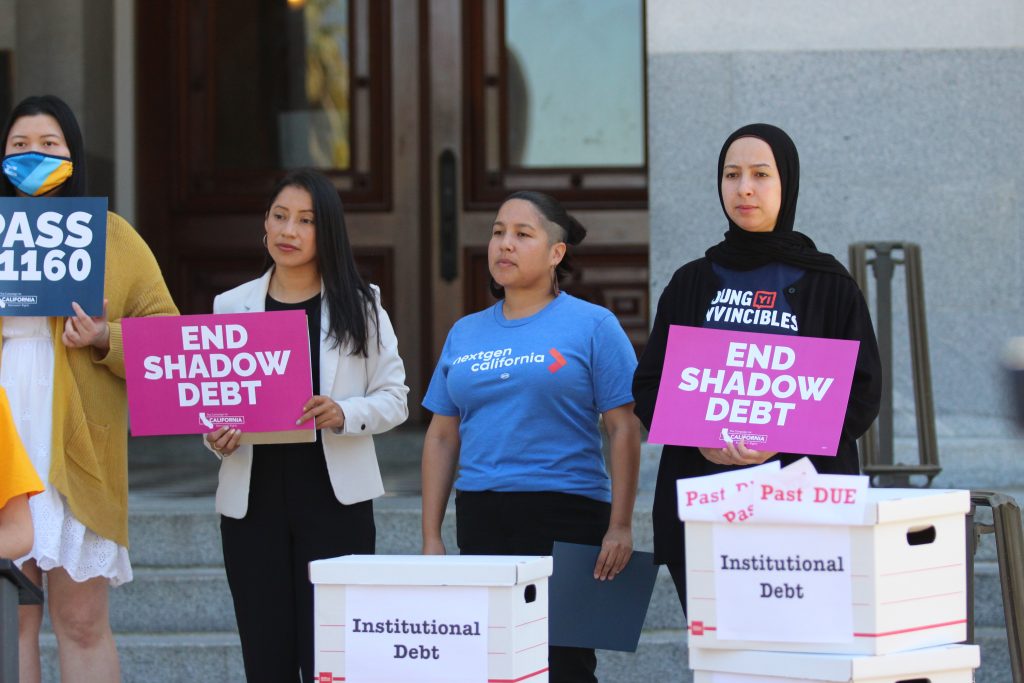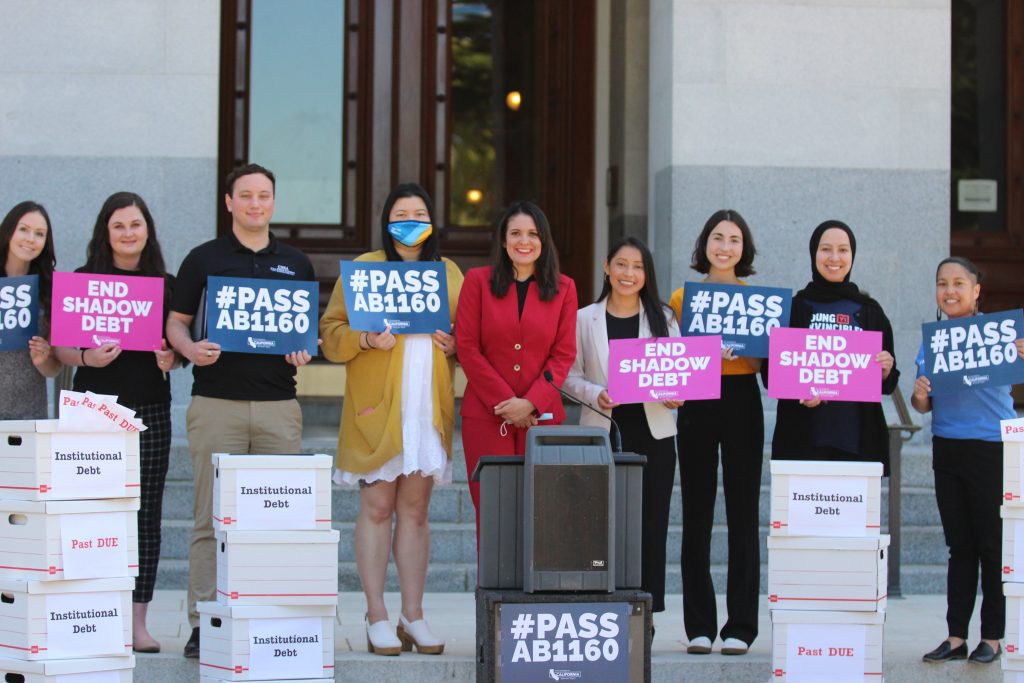
Let’s Talk… AB 1160 – The Protecting Students from Creditor Colleges Act
Empowering Students: The Fight Against Institutional Debt with AB 1160
August 6, 2024
Imagine you're a college student, working hard to pursue your higher education goals and build a better future for you and your family. You believe in the promise of education as the ladder to the American Dream. But what happens when that ladder is pulled out from under you, leaving you in free fall? This is the harsh reality for many students burdened with institutional debt.
We talk a lot about the $1.7 trillion student loan debt crisis, but there’s another kind of debt that doesn’t make headlines: institutional debt. This is the debt that students owe directly to their colleges, not to the federal government like traditional student loans. It can include unpaid library fees or parking tickets, but the majority of this debt arises when a student who is receiving federal financial aid (e.g. Pell Grants) withdraws from courses before the end of a term often due to unforeseen life emergencies. In this situation, the student’s campus is required to return that money to the federal government and that college then in turn charges the amount of the returned funds to the students. These returned funds – what should have been free money for students to attend college – then become debts that students must repay.
Institutional debt hits low-income students the hardest, particularly those from marginalized communities. When the COVID-19 pandemic struck, the accumulation of institutional debt among California students worsened. In our state, over 750,000 low-income students accumulated more than $390 million in institutional debt. The accumulation of institutional debt can subject students to punitive debt collection practices: not being able to obtain their earned diploma, registration holds – meaning students are not able to enroll in future courses until the debt is paid, being placed in private debt collections, and even garnishment of tax benefits. That’s $390 million worth of dreams deferred and futures placed in jeopardy.

Institutional Debt is Harming California Students
Take Aan, for example. A former student-parent at CSU Dominguez Hills, Aan balanced motherhood and childcare while attending classes. When her husband fell ill a semester away from graduation, Aan made the difficult choice to drop out to care for him. Her school then demanded repayment of the aid they returned on her behalf. Unable to pay, Aan has a hold on her account, preventing her from returning to school, completing her degree, and finding a better-paying job.
Banning students from re-enrolling in classes because of institutional debt is a common practice – despite evidence that it directly harms higher education institutions’ completion rates and fuels the state’s enrollment crisis. The economic impact of institutional debt is profound. By hindering students' ability to graduate, it limits their earning potential and reduces their contributions to our economy, let alone their ability to repay any accumulated education related debt. A more educated workforce is essential for California’s economic growth and competitiveness.
Under AB 1160 (Pacheco), The Protecting Students from Creditor Colleges Act, Aan would be granted a one-term grace period during which her enrollment hold would be lifted, allowing her to re-enroll in her coursework and work with her campus on a repayment plan or access any other additional institutional aid or campus resources. This would enable Aan to make crucial progress toward her degree while giving her the opportunity to address and pay off her institutional debt.
Tackling California's Institutional Debt Crisis: A Need for State Action

Institutional debt may be a relatively new term for many, but its economic and social impact on our state’s students has been growing dramatically, worsened by the ever increasing total costs of attending college like food and housing needs and the COVID-19 pandemic. Unlike federal student loans, institutional debt is unregulated leaving students with no consumer protections or hit or miss repayment options.
In March 2022, experts from UC Berkeley, UC Merced, and UC Irvine highlighted this issue in their report, "Creditor Colleges: Canceling Debts that Surged During COVID-19 for Low-Income Students." Inspired by this research, Assemblymember Blanca Pacheco, student leaders and student loan borrower advocates introduced AB 1160, the Protecting Students from Creditor Colleges Act, in 2023 to tackle this escalating crisis.
AB 1160 takes decisive action by preventing colleges from withholding degrees in order to collect an institutional debt. The bill also provides a one-term grace period, enabling students to register or re-enroll in classes and continue their educational journey while working on repaying their debt. In addition, AB 1160 sets important consumer protections on third-party debt collection and on the use of the Interagency Intercept Collection Program by public colleges and universities to offset any tax returns and benefits. Furthermore, it mandates that higher education institutions collect and report data on institutional debt, ensuring much-needed transparency on this growing crisis.
Take Meaningful Action for California Students and Support AB 1160
California, let’s stand together with our students and support AB 1160!
Let’s show our students that we believe in their potential and turn the tide on institutional debt to help pave the way for a brighter future for all. Contact the California Senate Appropriations Committee and urge them to support AB 1160 (Pacheco), the Protecting Students from Creditor Colleges Act.
Passing AB 1160 isn’t just a policy change; it’s a statement. It says that California cares about its students. It says that we believe in opportunities for all and that we’re committed to breaking down barriers, not building them.
Thanks for reading,
Kimberly Sanchez
